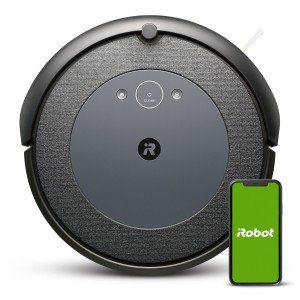Why Is Robot Vacuum Cleaner Price So Famous?
Understanding Robot Vacuum Cleaner Prices: A Comprehensive Guide
Over the last few years, robot vacuum cleaners have transformed the way people clean their homes. Their ease of use, convenience, and advanced technology have made them significantly popular. Nevertheless, with a plethora of designs and functions readily available, prospective buyers often find themselves asking a sixty-four-thousand-dollar question: What should I anticipate to spend for a robot vacuum cleaner? This post aims to clarify the expenses related to robot vacuum cleaners, factors that affect their prices, and ideas for discovering the right device for your budget.
The Price Range of Robot Vacuum Cleaners
Robot vacuum can differ commonly in price. Here, we break down the normal price range for different classifications:
Category
Price Range
Description
Entry-Level
₤ 100 – ₤ 250
Standard features, appropriate for little areas, minimal smart technology.
Mid-Range
₤ 250 – ₤ 500
Improved cleaning abilities, much better navigation, some smart features.
High-End
₤ 500 – ₤ 1,000+
Advanced mapping, effective suction, internet connection, and app combination.
Entry-Level Models
Low-cost robot vacuums are ideal for those who require a basic cleaning tool without high-end functions. They frequently deal with tough floorings well but might have problem with carpets and are typically less long lasting.
Mid-Range Models
These vacuums often come geared up with much better suction power and more intelligent navigation systems, making them suitable for larger homes with mixed flooring. Numerous models in this range offer Wi-Fi connectivity and smart device control.
High-End Models
High-end robot vacuums are designed for severe cleaning enthusiasts. They usually use sophisticated mapping technology, effective suction, and integrated electronic cameras for improved navigation. In addition, many high-end models permit for vacuuming on a schedule and even have the ability to empty their dust bins automatically.
Factors Affecting Robot Vacuum Prices
Comprehending the factors that can affect the price of a robot vacuum can help customers make more educated getting decisions. The following list describes some essential functions that can impact price:
Brand Reputation: Established brands normally bring a greater cost due to their track record and trustworthy client assistance.
Cleaning Technology:
- Suction Power: More effective models will be more costly.
- Navigation Systems: Advanced models with much better obstacle detection and mapping abilities cost more.
Smart Features: Models that use connectivity to apps, voice control compatibility, and advanced scheduling options tend to be priced greater.
Battery Life: Longer-lasting batteries generally lead to a higher price, as they allow the vacuum to tidy larger locations without needing to charge.
Dustbin Size: Larger dustbins can be more hassle-free for consumers, promoting a higher price point.
Extra Features: Some vacuums offer mopping abilities, self-cleaning functions, and high-efficiency filters, which can increase their price.
Budget vs. Features: What to Consider
When purchasing a robot vacuum, it's necessary to weigh your budget against the functions you most desire. Here are a number of considerations to assist you make an informed decision:
1. Assess Your Home's Needs
Size of Space: Larger homes might take advantage of more advanced vacuums that can cover more ground without frequent recharging.
Floor Types: If your home includes a mix of carpet and difficult floors, go with a vacuum developed for both.
2. Determine Desired Features
- Decide which functions are necessary for you, such as scheduling, app connection, and cleaning modes.
3. Price vs. Durability
- While a greater investment can yield longer-lasting models, it's worth considering lower-cost choices if you're unpredictable about long-term usage.
Regularly Asked Questions (FAQs)
Q1: Are robot vacuums worth the financial investment?
A1: If you lead a hectic lifestyle or have movement concerns, a robot vacuum can save substantial effort and time in cleaning, making them a rewarding financial investment.
Q2: How often should I replace a robot vacuum?
A2: Depending on the model and use, a robot vacuum usually lasts in between 3 to 5 years. Our Web Page -end designs might last longer with correct upkeep.
Q3: Can a robot vacuum totally replace a traditional vacuum?
A3: While robot vacuums efficiently manage daily cleaning, they may not replace standard vacuums for deep cleaning, especially in multi-level homes or locations needing substantial care.
Q4: What is the typical life expectancy of a robot vacuum?
A4: The lifespan of robot vacuums varies by model, but most last between 3-5 years with regular maintenance, like dustbin emptying and filter modifications.
Q5: Do robot vacuums work on carpets?
A5: Yes, however the efficiency will depend upon the design. Higher-priced models typically have much better suction power to clean carpets efficiently.
The marketplace for robot vacuum varies, with models to fit various budget plans and cleaning needs. Whether customers are searching for a standard cleaning tool or an advanced gadget geared up with numerous smart functions, understanding the price ranges and elements impacting costs is important. With cautious consideration of private requirements and financial restrictions, potential buyers can find a robot vacuum that will enhance their cleaning routine and provide long-term fulfillment.
